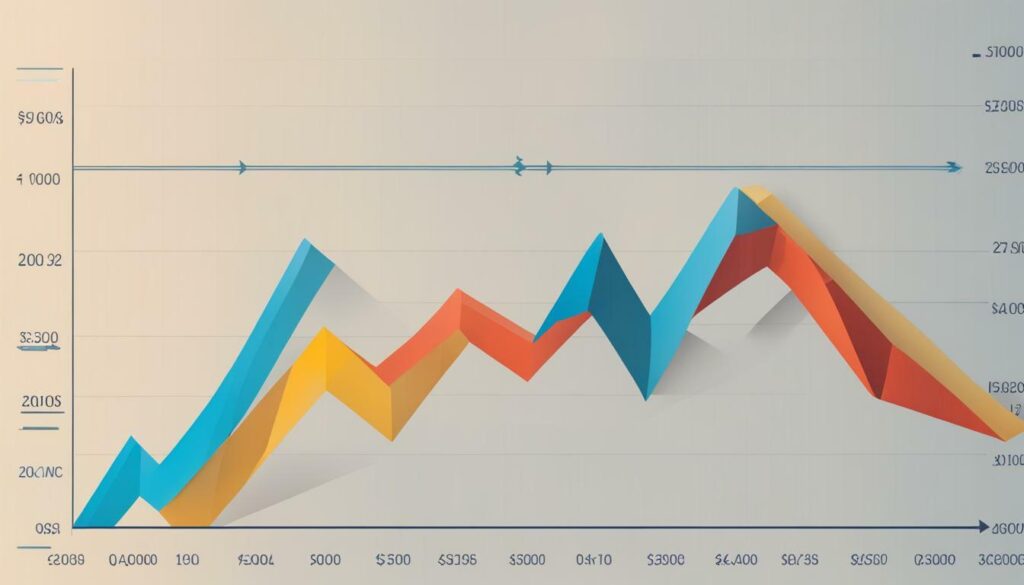Understanding Credit Score Fluctuations and Their Causes

Your credit score can change over time due to several factors, and understanding these fluctuations and their causes is essential for managing your credit health. Factors such as payment history, credit utilization ratio, types of credit accounts, length of credit history, and new credit can all impact your credit score. Different lenders may use different scoring models, leading to variations in credit scores. Additionally, fluctuations in credit card balances, paying off debts, and changes in credit reports can also influence your credit score. Regularly monitoring your credit reports is important to ensure accuracy and address any issues that may arise. By understanding and managing these factors, you can maintain a healthy credit score.
Key Takeaways:
- Understanding credit score fluctuations is crucial for managing your credit health.
- Factors like payment history, credit utilization ratio, types of credit accounts, length of credit history, and new credit can impact your credit score.
- Different lenders may use different scoring models, resulting in variations in credit scores.
- Fluctuations in credit card balances, paying off debts, and changes in credit reports can also affect your credit score.
- Regularly monitoring your credit reports helps ensure accuracy and allows you to address any issues promptly.
Factors Affecting Credit Score Fluctuations
Several key factors can affect your credit score, including your payment history, credit utilization ratio, types of credit accounts, length of credit history, and new credit. Understanding the impact of these factors can help you better manage your credit score.
One of the most important factors affecting your credit score is your payment history. This refers to whether you’ve made your payments on time and in full. Late or missed payments can have a negative impact on your credit score, while consistently making timely payments can help improve it.
🚨 TUIC Errors + Low Credit Score?
CreditScoreIQ helps you build credit faster by reporting utility bills to all 3 bureaus—while you dispute errors.
Start Building Credit Today →The credit utilization ratio is another significant factor that lenders consider when determining your creditworthiness. This ratio is calculated by dividing the total amount of credit you’re using by the total amount of credit available to you. It’s generally recommended to keep your credit utilization ratio below 30% to maintain a healthy credit score.
| Factors Affecting Credit Score Fluctuations | Impact |
|---|---|
| Payment History | Positive payment history can improve your credit score, while late or missed payments can lower it. |
| Credit Utilization Ratio | A high credit utilization ratio can negatively impact your credit score, while a lower ratio can have a positive effect. |
| Types of Credit Accounts | Holding a mix of credit accounts, such as credit cards, loans, and mortgages, can positively contribute to your credit score. |
| Length of Credit History | A longer credit history can demonstrate responsible credit management and positively impact your credit score. |
| New Credit | Opening multiple new credit accounts within a short period of time can raise red flags for lenders and potentially lower your credit score. |
The types of credit accounts you have also play a role in determining your credit score. Having a mix of credit accounts, such as credit cards, loans, and mortgages, can demonstrate responsible credit management and contribute positively to your credit score.
The length of your credit history is another factor that lenders consider. Generally, a longer credit history can demonstrate your ability to manage credit over time, which can be viewed favorably by lenders and positively impact your credit score.
Lastly, opening new credit accounts can also affect your credit score. While it’s important to establish new credit to demonstrate your creditworthiness, opening multiple new credit accounts within a short period of time can raise red flags for lenders and potentially lower your credit score.
By understanding these factors and how they can impact your credit score, you can take proactive steps to better manage your credit health. Regularly monitoring your credit reports for accuracy and addressing any issues promptly can help maintain a healthy credit score. Additionally, practicing responsible financial habits such as making timely payments and keeping your credit utilization ratio low can contribute to a positive credit score.

Variations in Credit Scores and Scoring Models
Credit scores can vary due to differences in scoring models used by lenders, which can result in fluctuations in your credit score. It’s crucial to regularly monitor your credit reports to ensure accuracy and address any issues that may impact your creditworthiness.
Various scoring models are used by lenders to assess creditworthiness, and each model may have its own unique algorithm and weightage for different factors. This means that even if you have the same credit data, different scoring models may produce different credit scores. It’s important to be aware of this because lenders often use different scoring models when evaluating credit applications.
| Scoring Model | Score Range |
|---|---|
| FICO Score | 300-850 |
| VantageScore | 300-850 |
| TransUnion CreditVision | 300-850 |
Monitoring your credit reports regularly allows you to identify any errors or inaccuracies that could negatively impact your credit score. It also gives you the opportunity to address any issues promptly and take necessary steps to improve your creditworthiness.
Remember, credit scores are dynamic and can change over time based on your credit behavior and the information reported by lenders. By understanding the variations in credit scores and scoring models, you can make informed decisions to manage your credit effectively and maintain a healthy credit score.

Fluctuations in credit card balances, paying off debts, and changes in credit reports can all contribute to changes in your credit score. Understanding these external factors and managing them effectively can help maintain a healthy credit score.
When it comes to credit card balances, keeping them low compared to your credit limit can have a positive impact on your credit score. High balances or maxing out your credit cards can cause your score to drop. Paying off debts is another important factor to consider. Making timely payments and reducing your overall debt can improve your credit score over time.
| External Factors | Credit Score Impact |
|---|---|
| Fluctuations in credit card balances | Can cause score fluctuations |
| Paying off debts | Positive impact on score |
| Changes in credit reports | Can impact credit score |
In addition to credit card balances and debt repayment, changes in credit reports can also affect your credit score. It’s crucial to review your credit reports regularly to ensure accuracy. Errors or discrepancies on your credit reports can negatively impact your credit score. If you identify any incorrect information, it’s important to take steps to dispute and correct it.
It’s worth mentioning that credit freezes and closing accounts generally do not have a direct impact on your credit scores. However, sudden drops in credit scores should be investigated further to rule out potential fraud or identity theft. It’s recommended to consistently use the same credit scoring model and report to track your credit score for consistency.

Understanding and managing these external factors can help you maintain a healthy credit score, ensuring better financial opportunities in the future.
Conclusion
Understanding credit score fluctuations and their causes is crucial for maintaining a healthy credit score and improving your overall financial health. By staying informed and managing the factors that impact credit scores, you can increase your creditworthiness and achieve your financial goals.
Factors such as payment history, credit utilization ratio, types of credit accounts, length of credit history, and new credit can all affect your credit score. It’s important to be mindful of these factors and take steps to maintain a positive credit profile.
Additionally, different lenders may use different scoring models, leading to variations in credit scores. Monitoring your credit report regularly and addressing any inaccuracies or issues is essential to ensure the accuracy of your credit score.
Fluctuations in credit scores can also be influenced by external factors such as changes in credit card balances, paying off debts, and updates to your credit reports. It’s important to maintain stable financial habits and address any changes that may impact your credit score.
By understanding and managing these factors, you can take control of your credit health and increase your chances of achieving your financial goals. Regularly monitoring your credit report, addressing any issues, and practicing responsible financial habits will contribute to a healthy credit score and improve your overall financial well-being.
FAQ
What are the factors that can affect credit score fluctuations?
Credit scores can be influenced by factors such as payment history, credit utilization ratio, types of credit accounts, length of credit history, and new credit.
Can variations in credit scores be caused by different scoring models?
Yes, different lenders may use different scoring models, which can lead to variations in credit scores.
Do fluctuations in credit card balances and paying off debts impact credit scores?
Yes, fluctuations in credit card balances and paying off debts can impact credit scores.
Why is it important to regularly monitor credit reports?
Regularly monitoring credit reports helps ensure accuracy and allows for the identification and resolution of any issues that may impact credit scores.
Do credit freezes and closing accounts directly impact credit scores?
No, credit freezes and closing accounts generally do not directly impact credit scores.
Should sudden drops in credit scores be investigated for potential fraud or identity theft?
Yes, sudden drops in credit scores may warrant further investigation for potential fraud or identity theft.
Is it recommended to use the same credit scoring model and report for consistent credit score tracking?
Yes, it is recommended to use the same credit scoring model and report for consistent credit score tracking.
How can understanding and managing these factors help maintain a healthy credit score?
Understanding and managing these factors can help individuals maintain a healthy credit score, which is important for financial health and creditworthiness.
Ready to Improve Your Credit?
Disputing TUIC errors is step one. Step two? Boost your score by reporting utility payments with CreditScoreIQ.
Get Started Now (Only $1 Trial) →3-bureau reporting • $1M identity insurance • Dark web monitoring






